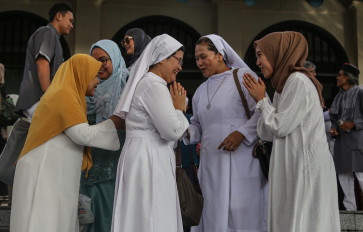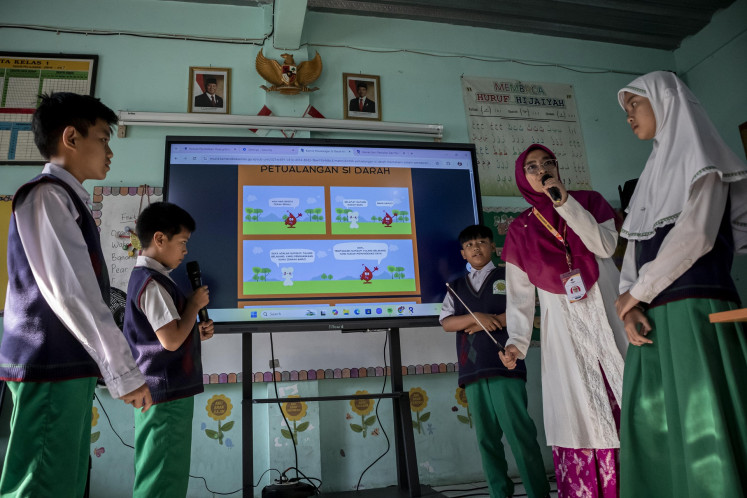Japan rebuffs international outcry over new history textbooks
Japanon Tuesday rebuffed neighboring countries' protests about newly-approvedtextbooks after complaints about references to disputed territory and theirbitter shared history
Change text size
Gift Premium Articles
to Anyone

J
apanon Tuesday rebuffed neighboring countries' protests about newly-approvedtextbooks after complaints about references to disputed territory and theirbitter shared history.
The education ministry announced on Monday that all 18 new social studies textbooks for use in junior high schools assert Japanese ownership of two separate island groups at the center of disputes with China and South Korea.
New school books also fail to use the word "massacre" when referring to Japan's mass slaughter of Chinese civilians in Nanjing in 1937, preferring the term "incident".
The textbook dispute surfaces regularly in the three-way row over events in the first half of the 20th century, when Japan invaded and occupied large tracts of Asia.
But it has come at a particularly sensitive time as the region prepares to mark the 70th anniversary of the end of World War II, and with a rising tide of nationalism in China, Japan and South Korea.
Immediately after Monday's announcement, the South Korean foreign ministry summoned Japanese ambassador Koro Bessho to protest over the textbooks.
"The Japanese government carried out another provocation by app roving school textbooks that strengthen unfair claims over our territory," the ministry said in a statement.
Tokyo and Seoul are at odds over the sovereignty of a pair of sparsely-inhabited rocks in waters between them, administered by Seoul as Dokdo but claimed as Takeshima in Japan.
"This clearly shows that the Japanese government seeks to inculcate the distorted views on history and territory into the minds of the young generation and tries to repeat the wrongs it committed in the past," it said.
In Tokyo Chief Cabinet Secretary Yoshihide Suga rejected those claims.
"Our country's textbook screening is carried out impartially and neutrally, based on professional and academic deliberations," Suga told a news conference.
"Since our country's stance on Takeshima and history recognition have been consistent, we responded to [South Korea] by saying we cannot accept their protest."
A Japanese education ministry official confirmed that one of the new history textbooks did not refer to the mass killing in Nanjing, while "many others have described it as an incident, not a massacre".
China says 300,000 civilians and soldiers died in a spree of killing, rape and destruction in the six weeks after the Japanese military entered the then-capital on Dec. 13, 1937.
While some foreign academics put the number of deaths lower, no mainstream respected historians dispute there was a massacre.
In Beijing, foreign ministry spokeswoman Hua Chunying said China was "gravely concerned about what is happening in Japan".
"The Nanjing massacre is an atrocity committed by Japanese militarism during its war of aggression against China, which is based on irrefutable evidence and conclusions were drawn long ago on this," she said.
"Japan's treatment and perception of relevant issues actually show whether Japan can hold an honest, responsible and correct perception of history. History is history, it cannot and should not be allowed to be changed wilfully."
Separately on Tuesday, Japan issued its annual "blue book" on foreign policy, saying: "The starting point of Japan's coherent path as a peaceful nation is our pledge not to fight a war again and keep peace, based on our deep remorse over the past war." (+++++)









